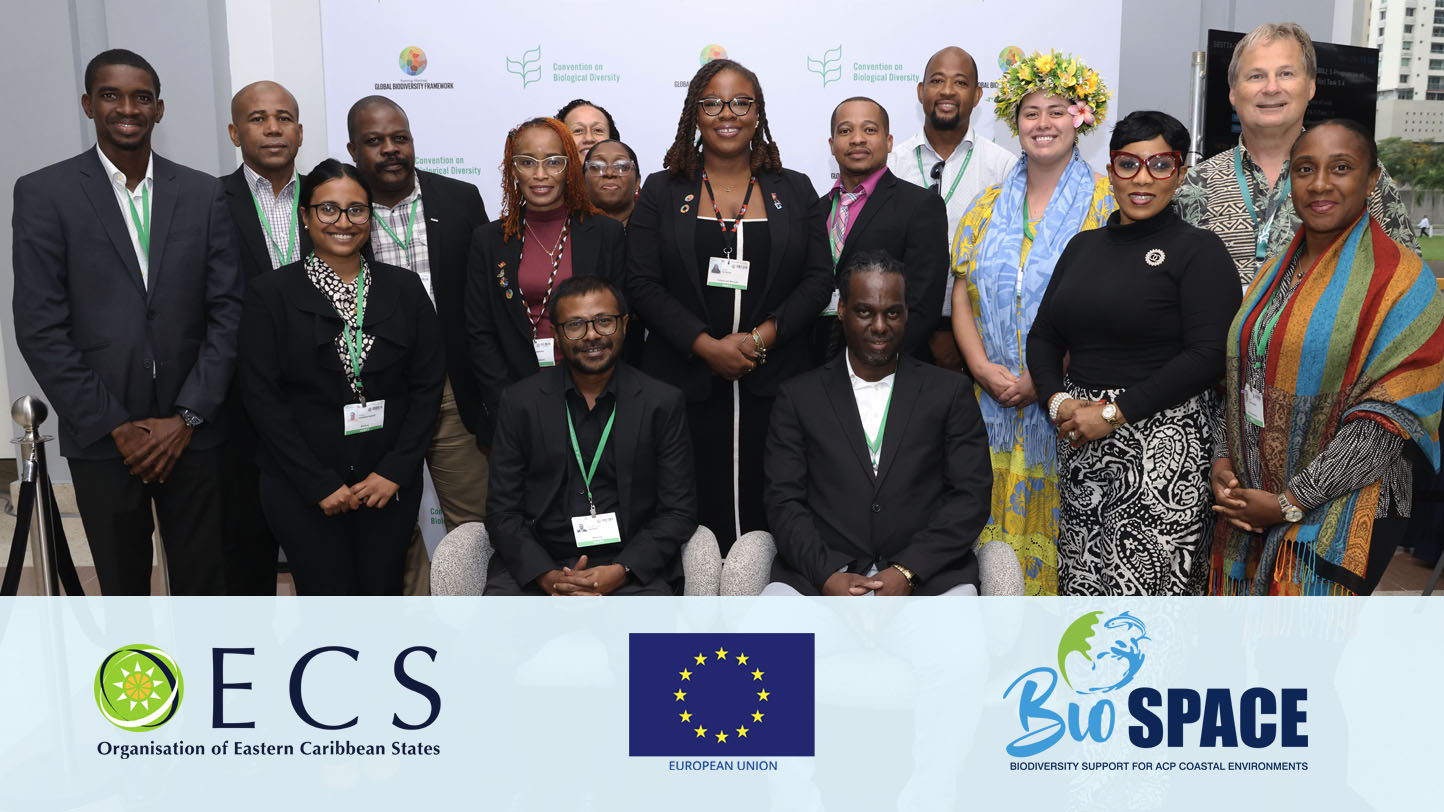OECS Advances Regional Biodiversity Goals at Global UNCBD Meetings in Panama
Press Release: OECS Commission
The Organisation of Eastern Caribbean States (OECS) Commission participated in and supported OECS Member States at the recently concluded 27th meeting of the Subsidiary Body on Scientific, Technical and Technological Advice (SBSTTA-27) under the United Nations Convention on Biological Diversity (UNCBD), and the first meeting of the Subsidiary Body on Article 8(j) (SB8J) in Panama.
These high-level global biodiversity meetings brought together governments, academia, Indigenous Peoples and Local Communities, representatives of women and youth, and other Observers from around the world to advance implementation of the Kunming-Montreal Global Biodiversity Framework (KMGBF) and strengthen international cooperation to halt and reverse biodiversity loss by 2030.
The OECS delegation, led by Dr. Helena Jeffery Brown, Programme Director for the OECS Biodiversity, Ecosystems, and Ecosystem Services Unit, was supported by the EU-funded BioSPACE Programme. The purpose of attending was to support the OECS Member States in improving their participation at these UNCBD meetings.
27th meeting of the Subsidiary Body on Scientific, Technical and Technological Advice
The SBSTTA-27 meeting held Oct 20 - 24, 2025, was intended to advance scientific and technical advice to the implementation of the Kunming Montreal Global Biodiversity Framework (GBF). Discussions rallied around the process of planning, monitoring, reporting, and review of parties in their implementation of the GBF. Further to this, Parties focused on interlinkages between biodiversity, climate change, and human well-being. Key topics included addressing invasive alien species under GBF Target 6, integrating biodiversity into agriculture, forestry, and ecosystem-based approaches for adaptation and disaster risk reduction, and incorporating the scientific findings of the Intergovernmental Science-Policy Platform on Biodiversity and Ecosystem Services (IPBES) to enhance evidence-based decision-making within the Convention on Biological Diversity (CBD). Throughout SBSTTA-27, the OECS Commission delegation worked alongside OECS Member States to advocate for regional priorities, along these lines. use.
Delegates from Antigua and Barbuda, Grenada, Saint Lucia, and Saint Kitts and Nevis, and other SIDS shared insights on the importance of the meetings for small island developing states (SIDS), highlighting the essential role of biodiversity in sustaining livelihoods, improving resilience, and conserving and restoring ecosystems.
Historic First Meeting of the Subsidiary Body on Article 8(j)
The inaugural SB8J meeting held on Oct 27 - 30, 2025, marked a landmark moment under the UNCBD, establishing the first permanent UN body dedicated to traditional knowledge, rights, and contributions of Indigenous Peoples and Local Communities (IPLCs).
Several OECS Member States participated along with the delegation from the OECS Commission, emphasising the significance of this new subsidiary body for the Eastern Caribbean, home to the Indigenous Kalinago people and communities whose traditional practices form the foundation of cultural and ecological resilience.
The OECS delegation:
- Supported SIDS collaboration to amplify regional voices.
- Took part in discussions on equitable participation and traditional knowledge.
- Highlighted the role of Indigenous Peoples and Local Communities (IPLCs) in biodiversity conservation.
Negotiations also addressed participation rights, with OECS Member State representatives emphasising the importance of full inclusion of Indigenous and local community leaders in global decision-making.
Ensuring a Strong Regional Voice in Global Biodiversity Governance
Throughout both meetings, OECS Member States reiterated the need for:
- Enhanced technical capacity, particularly for Small Island Developing States (SIDS).
- Dedicated financing to support biodiversity implementation.
- Recognition of traditional knowledge as a cornerstone of conservation.
- Strategic partnerships to advance biodiversity action and regional priorities under the KMGBF.
The OECS welcomes the spirit of collaboration and the constructive outcomes of this meeting and remains committed to building on them to accelerate implementation and deepen cooperation.
OECS Closing Statement to the SBSTTA-27 Conference
The Organisation of Eastern Caribbean States (OECS) Commission reaffirms its unwavering commitment to supporting our Member States in the full and active implementation of the Kunming-Montreal Global Biodiversity Framework, which aligns closely with the vision of the St. George’s Declaration of Principles for Environmental Sustainability - a commitment that by 2040, “the peoples and governments of the Eastern Caribbean will live within environmental limits, guided by the principles of equity, resilience and sustainability.”
For Caribbean SIDS, our priorities are clear and urgent: decisive action is needed on Agenda Items 3, 5, and 6 to conserve, restore, and sustainably use biodiversity, strengthen resilience, and address invasive alien species.
Capacity remains a defining challenge for SIDS. We therefore call for innovative partnerships and strategic resource mobilisation, which includes the private sector, and sustained technical cooperation to translate ambition into action and measurable progress, particularly under Target 2, to restore healthy ecosystems and halt biodiversity loss.
The OECS expresses sincere appreciation to the European Union for its flagship support to marine and terrestrial biodiversity and integrated land management, initiatives that are driving measurable progress toward KMGBF targets across our Member States. The OECS also reaffirms its partnership with the CARICOM Secretariat in advancing collective Caribbean action toward global biodiversity goals. Guided by these collaborations, the OECS is developing a sustainable financing model through the 30x30 Transformational Programme, charting a bold path toward resilience, prosperity, and a nature-positive future.
The OECS welcomes the spirit of collaboration and the constructive outcomes of this meeting and remains committed to building on them to accelerate implementation and deepen cooperation.
Danny Moonie
OECS Communications Unit





















